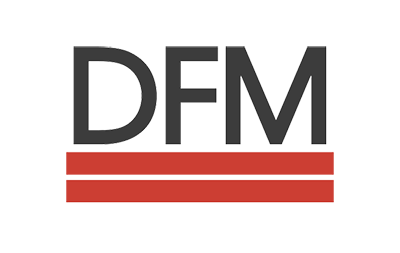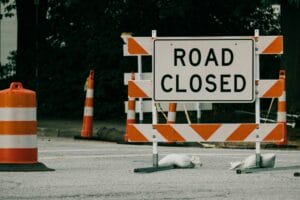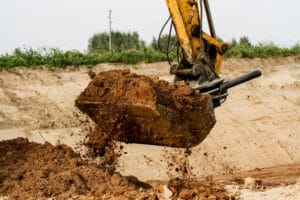Overview of the importance of safety standards in work zones
All worksites must have high safety standards, but it’s especially important in work zones that have an increased risk of serious injury. Road maintenance work brings unique work zone safety challenges that must be proactively managed to minimize the threats posed to industry workers and pedestrians.
By investing in robust safety measures, general contractors and project owners can ensure that workers and the public are kept as safe as possible. This allows for a productive work environment that completes jobs on time and within budget. Ultimately, managing the risks posed by these inherently hazardous worksites should be a foundational component of any construction project.
Understanding Work Zone Safety
Statistics on work zone accidents and fatalities
Despite increased awareness of the dangers of construction sites and work zones, incidents, accidents, and fatalities remain a significant risk. Fatalities in work zone areas increased by more than 60% between 2013 and 2021, resulting in more than 100,000 accidents that caused 40,000 injuries and nearly 1000 deaths. As a result, road construction workers are at significantly greater risk than the average American worker. One study found that workers in this field are 3.5 times more likely to die at work compared with the national average, and 20 times more likely than colleagues who work in the office.
The increased number of work zone accidents has had both human and economic consequences. The loss of human life is tragic. From an economic perspective, it has been estimated that poor safety controls in work zones result in more than $35 billion in damages each year.
Factors contributing to work zone accidents
Traffic work zones are inherently dangerous due to a number of factors, including the weight of the machines found in these areas, poorly designed traffic planning services, and human error. Carefully managed, the risk of work zone accidents can be severely reduced while maintaining the productivity of construction activities. Some of the leading factors contributing to work zone accidents include:
Distracted Drivers
Inattentive drivers cause the majority of work zone accidents. This usually happens for one of two reasons: motorists driving recklessly (such as using a cell phone or the vehicle’s infotainment system) or because they’re operating on “autopilot” (for instance, driving an everyday route in which they do not expect construction work).
Debris
Debris, such as rocks, dirt piles, and equipment, are often found at construction work sites. Debris that finds its way into traffic lanes poses a significant safety risk. Drivers may hit the debris and lose control of their vehicle or slam on their brakes in response, resulting in an increased risk of a collision. Fortunately, most incidents like this result in only minor injuries, but they can cause increased traffic congestion that increases the risk of more severe incidents; the more vehicles found around a worksite, the more likely an accident will occur.
Inadequate Setup
Poorly designed work zones pose significant risks to pedestrians and workers. Responsible project owners and contractors should take every reasonable measure to minimize driver confusion when entering worksites, including installing well-placed, attention-grabbing signs that provide plenty of notice to drivers of work taking place along the road. Poor staging, such as inefficiently placed barricades and other traffic calming measures, are also a leading contributor to work zone accidents.
Importance of Proactive Safety Measures
Taking proactive safety measures should be a foundational part of any construction work planning. All too often, companies make reactive decisions following an accident or close call. It is much easier, safer, and cost-efficient to prevent a problem than waiting until one happens before making adjustments. Proactive measures analyze and mitigate risks ahead of time, ensuring that the worksite is entirely safe before work commences. Every worksite is different. As such, each should be customized to reflect the unique threats and dangers posed by the environment and nature of the construction work.
Navigating the Components of Advanced Work Zone Expertise
Despite growing awareness of the dangers of construction projects within traffic zones, the number of incidents continues to rise. As such, all construction companies must work with traffic control experts to establish a safe environment that maximizes transport fluidity for motorists, pedestrians, cyclists, and work crews.
Investing in expert-led Maintenance of Traffic (MOT) plans and Traffic Control Plans (TCPs)can significantly minimize the risk of tragic incidents at the work site while ensuring that productivity and transportation logistics remain high. If your company needs traffic control plans for a project located in Virginia, Maryland, and Washington, D.C., don’t hesitate to contact the experts at DFM Development Services by calling (703) 942-8700 or visiting our website.




